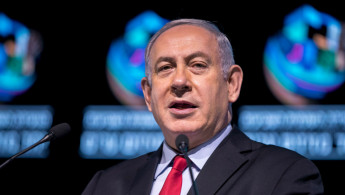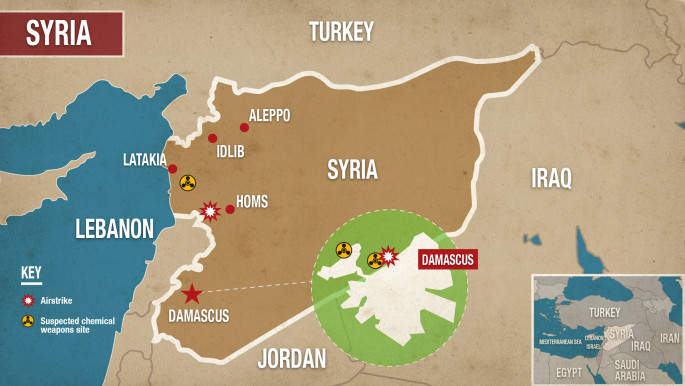Israel's Netanyahu warns over Iran's presence in Syria
Israel's Prime Minister Benyamin Netanyahu warned Sunday over Iran's presence in Syria after the US, Britain and France launched a wave of punitive airstrikes against Bashar al-Assad's Syrian regime on Saturday in response to alleged chemical weapons attacks that President Donald Trump branded the "crimes of a monster".
Netanyahu called on Western powers to take the same approach towards preventing "terrorist states" from acquiring nuclear weapons, a thinly veiled reference to its rival enemy Iran.
The Israeli leader added he had spoken to the British Prime Minister Theresa May following the overnight strikes that targeted three alleged chemical weapons facilities.
Three targets were struck according to the US, including a research centre in Damascus, a chemical weapons storage facitiy west of Homs, and a key command post also near Homs.
Netanyahu had previously expressed his "total support" for the strikes alongside other world leaders.
"The important international message that came from the attack was zero tolerance for the use of non-conventional weapons," Netanyahu said at the start of a cabinet meeting, describing his discussion with May.
|
"I added that this policy needs to also be expressed in preventing terrorist states and groups from having nuclear abilities."
Netanyahu had previously pledged not to allow Iran to entrench itself militarily next door, and warned once again over its presence in Syria.
On April 9, seven Iranian personnel were among 14 people killed in an early-morning strike on the T-4 airbase in Syria, with regime allies Iran and Russia blaming Israel for the attack.
Israel has neither confirmed nor denied responsibility.
Netanyahu said he told May that Syrian President Bashar al-Assad "must understand that when he allows Iran and its proxies to establish a military presence in his country, he endangers Syria as well as the stability of the region".
Two Israeli officials said on Sunday that they would continue to act to prevent Iran from establishing itself in Syria.
At least 49 people died in the suspected chemical attack in Eastern Ghouta according to medical groups and rescuers, which prompted the US-led strikes, with other estimates reaching over a hundred.
Eastern Ghouta has been under a ruthless seven-week assault that devastated the area and killed more than 1,700 civilians, allowing Assad's forces to gain control of more than 90 percent of the former rebel stronghold.
Around 500,000 people have died and millions made homeless in seven years of fighting in Syria, which was sparked when regime forces brutally put down peaceful protests in 2011.






 Follow the Middle East's top stories in English at The New Arab on Google News
Follow the Middle East's top stories in English at The New Arab on Google News
![Israeli forces ordered bombed Gaza's Jabalia, ordering residents to leave [Getty]](/sites/default/files/styles/image_330x185/public/2176418030.jpeg?h=a5f2f23a&itok=_YGZaP1z)

